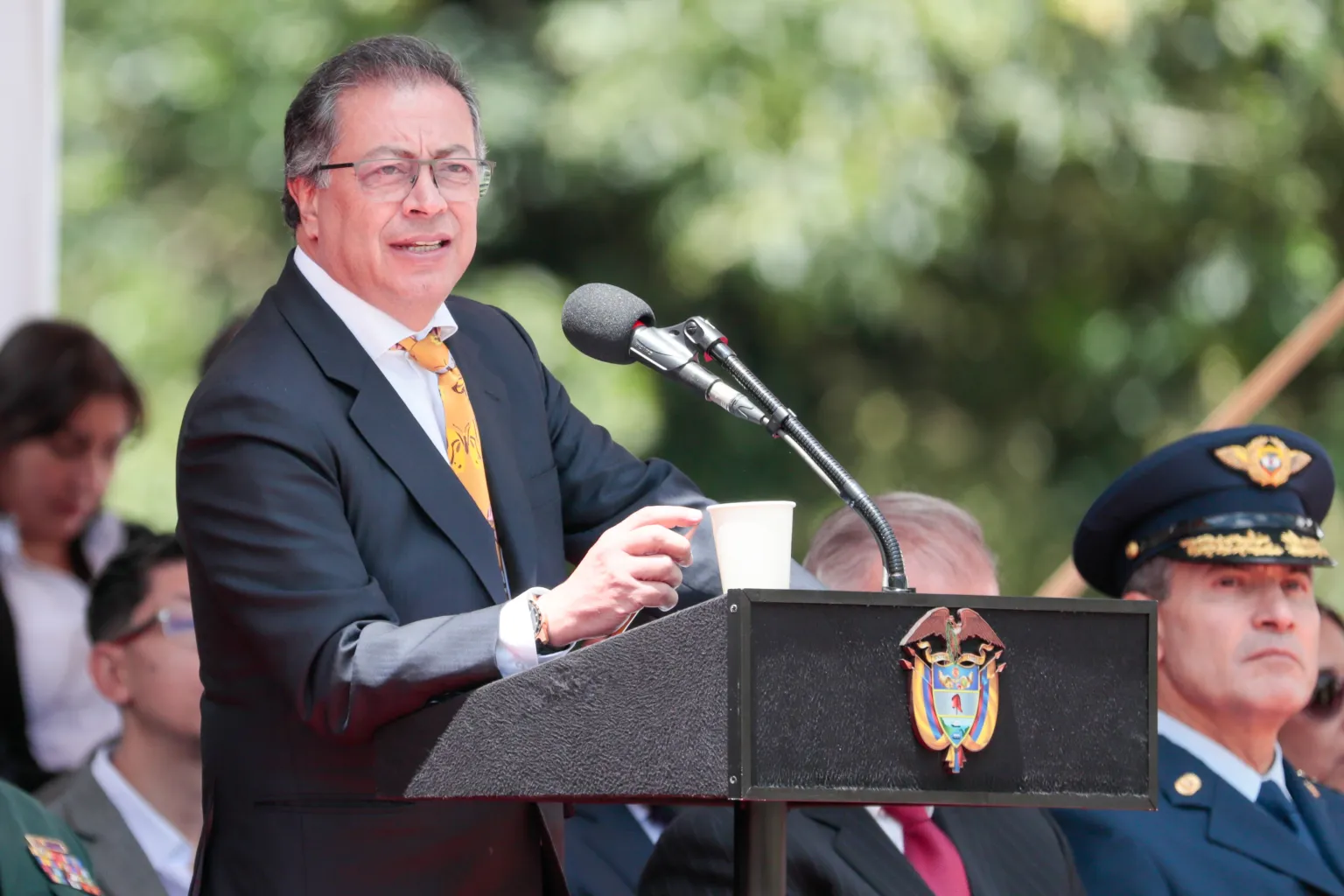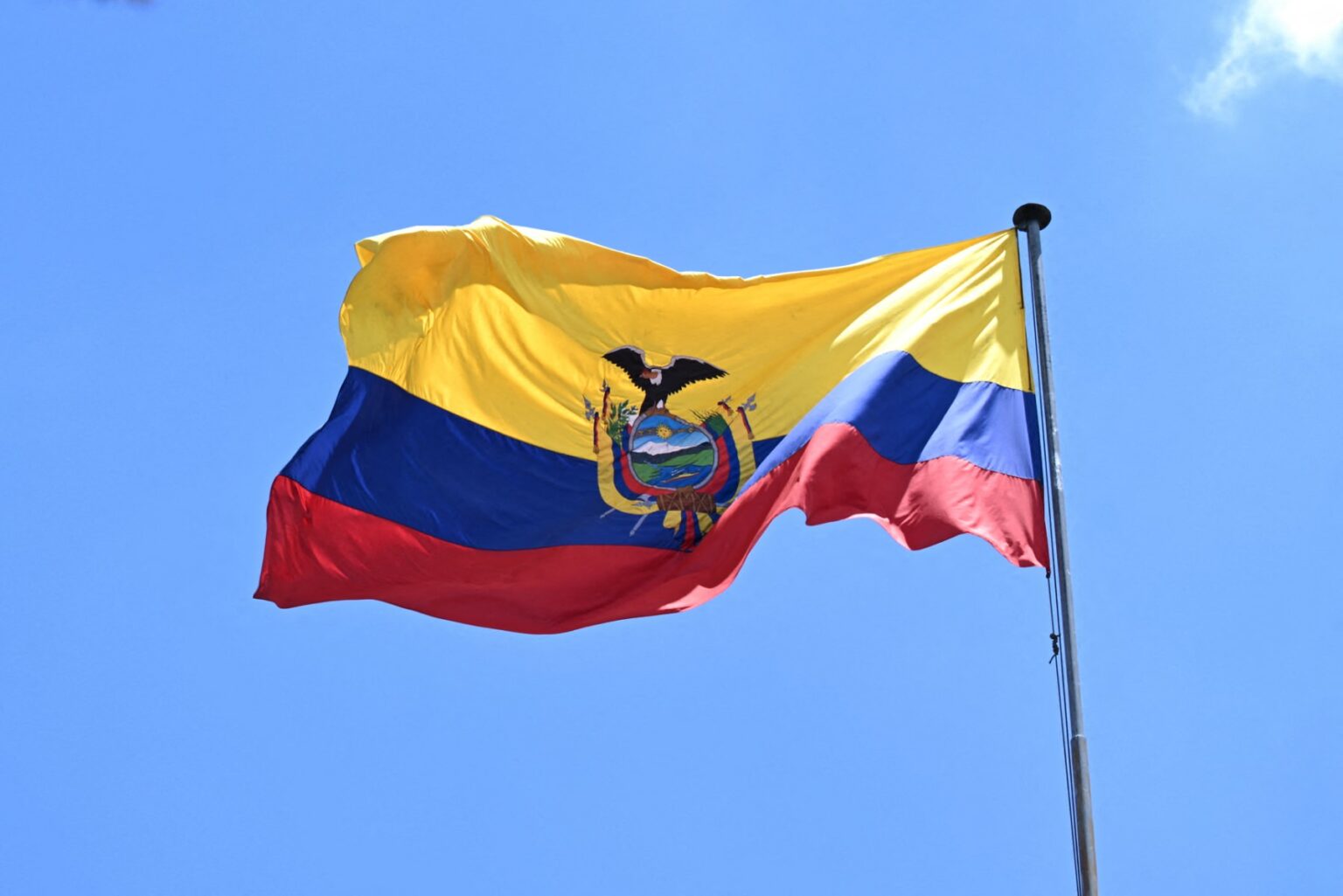International
Petro assures that CNE is taking steps towards a “coup d’état” by wanting to investigate him

Colombian President Gustavo Petro said on Saturday that the National Electoral Council (CNE) is taking steps towards “a coup d’état” by wanting to investigate him for possible irregularities in the financing of the electoral campaign that led him to the Presidency.
This week an investigation by the CNE became known, revealed by journalist Daniel Coronell on W Radio, which concluded that Petro’s electoral campaign in 2022 violated the spending limits established in the law and resorted to prohibited sources of financing.
“Every step taken against the president in the electoral council builds a coup d’état,” Petro estimated in his X account, who added: “Do they complain about Venezuela? In Colombia, a coup d’état against the president is advancing.”
This is because the CNE is the competent body to investigate parties, campaign managers and candidates, but the president has immunity, so the exclusive competence to investigate Petro criminally and disciplinary right now is the Commission of Inquiry and Prosecution of the House of Representatives, which has one open for this matter.
Therefore, Petro recalled that “the Constitution does not allow a purely administrative and political instance such as the electoral council, to prepare the way to suspend the president from his functions for a top investigation over which he had no more competence than 30 days after the election.”
However, the CNE alleges that it can investigate both the campaign and the president in the administrative field, as it already did with the campaign of former presidents Iván Duque and Juan Manuel Santos, and with it impose fines or refunds.
The CNE investigation against Petro
The investigation carried out by the CNE, led by the magistrate of the Liberal Party Benjamín Ortiz and the uribista Democratic Center Álvaro Hernán, and which according to the president “has no binding force”, concluded that Petro’s campaign crossed the limits by more than 5.3 billion pesos (1.27 million dollars) and that he also received contributions from legal entities, something explicitly prohibited by the electoral law.
Thus, during the first round it was supposedly exceeded by 3.7 billion pesos (888,650 dollars) and there were seven violations, among which it would have been omitted to report a contribution of 500 million pesos ($120,000) from the main education union, Fecode, and another contribution of the same amount from the Democratic Pole party that is part of the governing coalition.
Among the irregularities is linked to Xavier Vendrell, a Catalan politician investigated for what happened during the Catalan ‘process’ and close to Petro, specifically for not having reported the payment to electoral witnesses during the campaign.
Vendrell, who held the position of councilor of the Republican Left of Catalonia (ERC), worked in Petro’s campaign as head of electoral witnesses and campaign strategist, and indicated that he continued to be linked to Petro’s Government, a fact that the president has denied claiming that there are no current contracts with the former Catalan politician.
In the second round it overcomes stops
During the second round of elections, the ceilings of 1.6 billion pesos ($382,000) would also have been exceeded and five violations would have been committed.
Among the violations, in addition to the fact that the payments to electoral witnesses managed by Vendrell were not reported, the total cost of renting the Movistar Arena event center in Bogotá, which was used by Petro to celebrate the results of the second round of elections and which cost 250 million pesos (almost 60,000 dollars) and only 150 million ($36,000 dollars) were reported, would not have been reported.
As reported by the W Radio of the CNE investigation, which has not yet been published, there would also be a lack of reports on private flights of the now president during the campaign to attend proselytising events.
International
Colombia to Send High-Level Delegation to Ecuador to Ease Trade Tensions

Colombia’s Ministry of Foreign Affairs confirmed on Friday that, at the instruction of President Gustavo Petro, a high-level delegation will travel to Ecuador in an effort to normalize bilateral relations, which have deteriorated following the imposition of reciprocal tariffs.
“In line with Colombia’s policy of good neighborliness and the spirit of cooperation and integration that guides its foreign policy,” the Foreign Ministry said in a statement, adding that the delegation will be led by Foreign Minister Rosa Villavicencio and Defense Minister Pedro Sánchez.
“Following instructions from the Presidency of the Republic, and as has been publicly reiterated, the Colombian delegation expects to reaffirm Colombia’s offer of support to the Republic of Ecuador to strengthen control over phenomena stemming from transnational organized crime,” the statement said.
The Foreign Ministry noted that the delegation will attend the meeting with a full willingness to engage in dialogue and to seek concrete solutions to the unilateral measures that have affected the longstanding relationship between the two neighboring countries.
Trade tensions between Ecuador and Colombia escalated on January 21, when Ecuadorian President Daniel Noboaimposed a 30% tariff on Colombian products, citing a lack of cooperation in anti-drug efforts. Colombia responded with similar measures and the suspension of energy exports, while Ecuador increased transportation costs for Colombian crude oil.
Business associations in both countries have warned that the dispute is harming both economies and have called on the governments to resolve their differences through dialogue.
International
Super Bowl Halftime Show Puts Bad Bunny—and Immigration Politics—Back in the Spotlight

The long-standing argument that sports and politics should not mix may be put to the test on Sunday during the Super Bowl halftime show, which will be headlined by Puerto Rican superstar Bad Bunny, a choice that has sparked backlash from segments of the U.S. right wing.
Just one week after his headline-making appearance at the Grammy Awards—where he sharply criticized the United States’ anti-immigration policies—Bad Bunny will once again take center stage on the global spotlight with his performance at the NFL final in Santa Clara, California.
Beyond the expectations surrounding the show itself, speculation has grown over whether the artist could again use the platform to protest policies associated with the administration of former President Donald Trump, in front of an audience expected to exceed 120 million viewers in the United States alone.
In fact, one of the most popular Super Bowl prop bets this year revolves around whether the Puerto Rican singer will deliver a direct message against ICE (U.S. Immigration and Customs Enforcement), similar to the one he delivered at the Grammys last Sunday.
While few expect Bad Bunny to repeat such a pointed statement, the mere speculation highlights the delicate balance the NFL must manage during the most-watched broadcast of the year.
The world’s most powerful sports league has drawn criticism from the MAGA movement since announcing in September that Bad Bunny would headline a halftime show largely performed in Spanish.
Trump himself declined to attend the matchup between the New England Patriots and the Seattle Seahawks, despite having made history last year as the first sitting U.S. president to attend a Super Bowl. He described the musical lineup—which also includes outspoken critics such as Green Day—as “a terrible choice” that would “sow hatred.” In response, his supporters have organized an alternative event dubbed the “All-American Halftime Show,” featuring like-minded artists such as Kid Rock.
International
Venezuela Debates Broad Amnesty Law Covering 27 Years of Chavismo

Venezuela’s Parliament began debating on Thursday a sweeping amnesty bill that would cover the 27 years of Chavismo in power, while explicitly excluding serious human rights violations and crimes against humanity.
The proposed legislation, titled the “Amnesty Law for Democratic Coexistence,” was introduced by interim President Delcy Rodríguez, who assumed power following the capture of Nicolás Maduro during a U.S. military operation.
The legislative session was convened for Thursday afternoon, with lawmakers holding an initial discussion focused on the general principles of the bill. This phase precedes a consultation process with civil society, after which the proposal will move to a final debate examining each article individually.
According to a draft of the bill obtained by AFP, the amnesty would apply to individuals accused of crimes such as “treason,” “terrorism,” and “incitement to hatred,” charges that were frequently brought against political prisoners over the past decades. The scope also includes offenses ranging from acts of rebellion to punishments imposed for social media posts or messages sent through private messaging services.
The bill’s explanatory text emphasizes reconciliation, stating that it seeks to move away from “vengeance, retaliation, and hatred” in favor of “opening a path toward reconciliation.”
However, the proposal explicitly excludes from its benefits crimes such as “serious human rights violations, crimes against humanity, war crimes, intentional homicide, corruption, and drug trafficking.”
These exclusions, the text notes, are based on strict compliance with the Venezuelan Constitution, which already prohibits granting amnesties or pardons for such offenses.
-

 International4 days ago
International4 days agoDelcy Rodríguez Takes Control of Chavismo as Venezuela Enters a U.S.-Supervised Transition
-

 Central America3 days ago
Central America3 days agoPanama Will Not Be Threatened, President Says Amid Rising Tensions With China
-

 International4 days ago
International4 days agoHRW Warns Trump’s Influence Has Weakened Human Rights in Latin America
-

 International3 days ago
International3 days agoDíaz-Canel Calls for Talks With Washington Without Pressure as U.S. Tightens Oil Sanctions
-

 International3 days ago
International3 days agoVenezuela Debates Broad Amnesty Law Covering 27 Years of Chavismo
-

 International2 days ago
International2 days agoColombia to Send High-Level Delegation to Ecuador to Ease Trade Tensions
-

 Central America1 day ago
Central America1 day agoSalvadoran fans plan birthday surprise for Shakira at historic show
-

 Central America3 days ago
Central America3 days agoBukele’s Approval Rating Climbs to 91.9% in El Salvador, Survey Shows
-

 Sports1 day ago
Sports1 day agoShakira ignites El Salvador with near sold-out residency at Mágico González Stadium
-

 Central America5 hours ago
Central America5 hours agoGuatemala isolates Barrio 18 leader after attacks that killed 11 police
-

 International2 days ago
International2 days agoSuper Bowl Halftime Show Puts Bad Bunny—and Immigration Politics—Back in the Spotlight


























